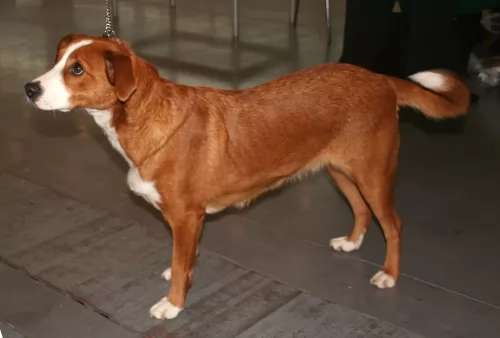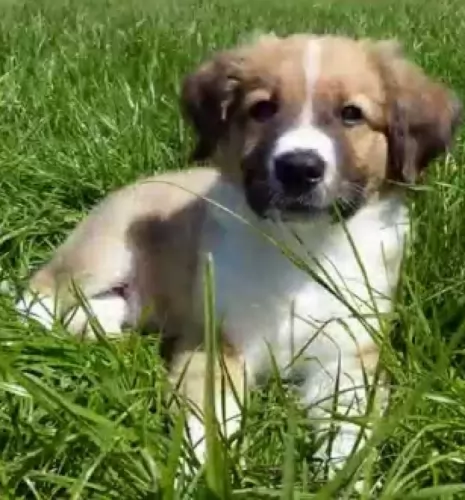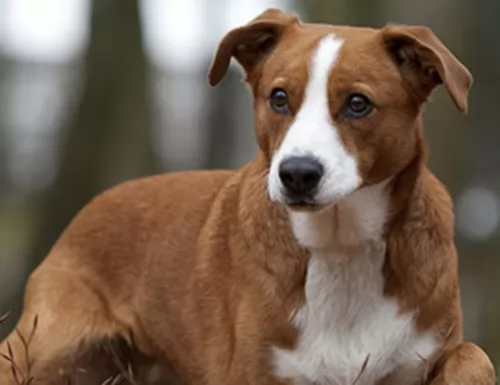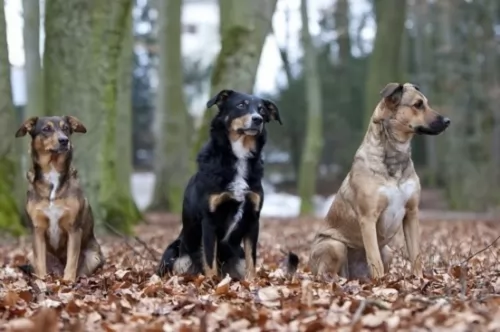 Petzlover
Petzlover Osterreichischer Kurzhaariger Pinscher is originated from Austria but Portuguese Podengo is originated from Portugal. Osterreichischer Kurzhaariger Pinscher may grow 20 cm / 8 inches higher than Portuguese Podengo. Osterreichischer Kurzhaariger Pinscher may weigh 14 kg / 31 pounds more than Portuguese Podengo. Both Osterreichischer Kurzhaariger Pinscher and Portuguese Podengo has same life span. Both Osterreichischer Kurzhaariger Pinscher and Portuguese Podengo has almost same litter size. Osterreichischer Kurzhaariger Pinscher requires Moderate Maintenance. But Portuguese Podengo requires Low Maintenance
Osterreichischer Kurzhaariger Pinscher is originated from Austria but Portuguese Podengo is originated from Portugal. Osterreichischer Kurzhaariger Pinscher may grow 20 cm / 8 inches higher than Portuguese Podengo. Osterreichischer Kurzhaariger Pinscher may weigh 14 kg / 31 pounds more than Portuguese Podengo. Both Osterreichischer Kurzhaariger Pinscher and Portuguese Podengo has same life span. Both Osterreichischer Kurzhaariger Pinscher and Portuguese Podengo has almost same litter size. Osterreichischer Kurzhaariger Pinscher requires Moderate Maintenance. But Portuguese Podengo requires Low Maintenance
 Hailing from Austria, the Osterreichischer Kurzhaariger Pinscher, better known as the Austrian Short-Haired Pinscher has always been depicted on paintings from the Baroque period.
Hailing from Austria, the Osterreichischer Kurzhaariger Pinscher, better known as the Austrian Short-Haired Pinscher has always been depicted on paintings from the Baroque period.
The dog is a terrier-type canine and has always been used as a watchdog but he was also used to hunt because of the terrier qualities he possesses.
This dog has always been used for working on farms. Breeding of this dog started in 1921 and the dog was recognized by the United Kennel Club in 2006.
 The Portuguese Podengo is an ancient hound dog from Portugal. It is available as a small dog, medium and large dog.
The Portuguese Podengo is an ancient hound dog from Portugal. It is available as a small dog, medium and large dog.
The coats can be short and smooth or longer and wiry. They were imported into the United States in the 1990's and they are also recognized by the Federation Cynologique Internationale in Europe. They are also recognized by the United Kennel Club. In America they are part of the Rare Breed Association.
 As a medium sized dog, both males and females stand at between 42 and 50cm in height and the dog weighs roughly between 14 and 20kg.
As a medium sized dog, both males and females stand at between 42 and 50cm in height and the dog weighs roughly between 14 and 20kg.
The coat is shortish, dense and smooth and is essentially black and tan with some white, fawn or brindle. The ears of the dog are fairly short and they look as though they wanted to be erect but then decided to be floppy. The nose is black and the eyes dark brown.
The tail is usually docked but when it is left long, it curls over the back. If you want your dog to be bred you can expect between 4 – 6 puppies.
These are playful dogs, getting on well with their human families and wanting to get involved in their activities. They are suspicious of strangers. They are good with kids, making them a good playmate, but they don’t like small children being allowed to climb over them.
They are able to get along well with any other pets in the house. It would be to your benefit to have the dog trained and socialized as he becomes obedient and good around people in social settings. He is an intelligent dog and will find training easy.
They also take their role as guardian and protector seriously.Because he was bred to be a farm dog, he wouldn’t e able to adapt to life on a tiny property in the city.
 The Portuguese Podengo is available in three sizes. He stands roughly at between 20 to 30 cm and weighs between 4.1 to 5.9 kg. The dog is similar in looks to other hunting dogs native to the Mediterranean, such as the Pharoah Hound.
The Portuguese Podengo is available in three sizes. He stands roughly at between 20 to 30 cm and weighs between 4.1 to 5.9 kg. The dog is similar in looks to other hunting dogs native to the Mediterranean, such as the Pharoah Hound.
They are small to medium sized dogs. The eyes are brown, the ears are erect and the tail long and thick, held low and with a bit of a curve when at rest.
The body of the dog is lean and well muscled and the head wedge shaped. The coat is essentially short and smooth though you also get the longer, wiry coat. The coat is found in shades of fawn or yellow and with some white markings.
This Portuguese sighthound is energetic, comical sometimes, sweet and loving. Being alert, he also makes a good watchdog.
He is intelligent, he is easily trained and socialized and gets on well with children in the house if they have been disciplined to respect and be kind to animals.
He is somewhat aloof around strangers and this is actually what makes him a good watchdog.
It is said that the Portuguese Podengo isn't bred to be a companion dog, being bred exclusively as a working hunting dog. This explains why it doesn’t have such a ‘companionable’ temperament as some other dog breeds.
 Have your Osterreichischer Kurzhaariger Pinscher trained and socialized if you want him to be amicable and obedient around you and your visitors.
Have your Osterreichischer Kurzhaariger Pinscher trained and socialized if you want him to be amicable and obedient around you and your visitors.
He does well with a human family who are firm, kind and patient with him. He loves to be kept busy with both mental and physical exercise, thriving on challenging activities, and he will become frustrated if he is left day after day just to lie around.
Take him with you on walks, buy him nice chewy, stimulating toys, throw a ball or frisbee with him and include him in your activities.
This is a dog more suited to life in the countryside as opposed to life in the city. Care well for this splendid family pet and you’ll quickly begin to see why dogs like him are known as man’s best friend.
 The Portuguese Podengo loves pleasing his human owners – loving to be in the company of his human family.
The Portuguese Podengo loves pleasing his human owners – loving to be in the company of his human family.
He is an independent dog who will benefit from training and socialization. He is wary around strangers, but this makes him a good watchdog.
He loves lots of exercise and will want mental and physical stimulation to be happy and content and as bright as he is.
Provide him with good care and he promises to make you a wonderful pet and companion.
 The Austrian Short-haired Pinscher is a robust kind of dog that isn’t going to have you rushing to the vet very often. True, he does have some hereditary health issues but it is highly unlikely that you will find these health issues in your pet.
The Austrian Short-haired Pinscher is a robust kind of dog that isn’t going to have you rushing to the vet very often. True, he does have some hereditary health issues but it is highly unlikely that you will find these health issues in your pet.
Nonetheless it pays to know about one of the more serious conditions -
This is a heart disease that is present from birth and could have been passed down from the parent dog to the puppy. A congenital heart defect occurs as a malformation of any valve, with the most common congenital heart diseases in dogs being patent ductus arteriosus, pulmonic stenosis as well as subaortic stenosis, all potentially inherited defects.
Sometimes a dog can live a fairly normal life with this disease but other times there are complications which can lead to congestive heart failure and atrial fibrillation, causing symptoms such as difficulty with breathing, cough and weakness. Your dog will need to get to the vet to discuss treatment options.
 The Portuguese Podengo is a robust, healthy dog that can get to 14 years of age if he is looked after well and exercised.
The Portuguese Podengo is a robust, healthy dog that can get to 14 years of age if he is looked after well and exercised.
The dog doesn’t battle with genetic disorders. It is thought that the most common problems with this dog are the injuries he gets from being such an outdoor, hunting dog. He could well rip his nail or have porcupine quills in his muzzle.
Some common dog diseases to be aware of are cancer, bloat,skin diseases and eye problems.
 They need quite a lot of exercise, and even though they can adopt to life in the countryside or the city, they will require regular walks, ball- and rope games to prevent them becoming bored, frustrated and destructive.
They need quite a lot of exercise, and even though they can adopt to life in the countryside or the city, they will require regular walks, ball- and rope games to prevent them becoming bored, frustrated and destructive.
The Austrian Short-haired Pinscher sheds quite a bit so he will need to be brushed at least twice a week to remove the loose hairs.
As a medium sized, energetic dog, you want to ensure you maintain your dogs energetic nature by providing him with excellent food.
Choose your commercially manufactured food carefully as some of them are of a poor quality and can actually be detrimental to your dog’s health. Choose a high quality kibble that has quality ingredients.
Home-made food such as boiled chicken, brown rice or pasta and vegetables such as carrots, spinach and sweet potatoes all chopped up and added to his kibble occasionally will do wonders for this dog. He will thrive on also getting in some raw meat from time to time.
Ensure a constant supply of fresh, cool water.
 The Podengo is always game and ready for a good time and likes nothing more than a good walk as well as the chance to get off his leash and have a bit of free time. He also loves ball games, being pulled along while he holds tightly on to a piece of rope and he loves darting back and forwards with a frisbee.
The Podengo is always game and ready for a good time and likes nothing more than a good walk as well as the chance to get off his leash and have a bit of free time. He also loves ball games, being pulled along while he holds tightly on to a piece of rope and he loves darting back and forwards with a frisbee.
Many things can change a dog’s longevity, and diet is one. A good nutritious diet with vitamins and minerals will give your dog less of a chance to get sick. If you go for the best quality commercially manufactured dog foods, you’ll find they are both convenient and well balanced.
To provide your dog with just a bit of variety in his diet, some home-made food added into the dry kibble from time to time will delight your pet.
No need to make preparing the food a huge issue either. Boil brown rice and chicken in a pot and add in sweet potatoes, carrots and spinach. Chop all this up and as a treat, add smaller portions of it into the dry kibble. This is a real treat for your dog. You’ll see his thanks in his bright eyes and wagging tail.
Try to include a bit of raw meat occasionally and never let your dog be without a constant source of fresh, cool water.
Make sure his puppy vaccines are up to date.
Have your dog spayed or neutered if you don’t want your dog being a parent.
Provide your dog with a warm, dry, comfy pace to sleep.
Trim his nails and check inside his ears for redness and infection.
Check for fleas and ticks when you brush him.
Get him to the vet when you can see he s sick.